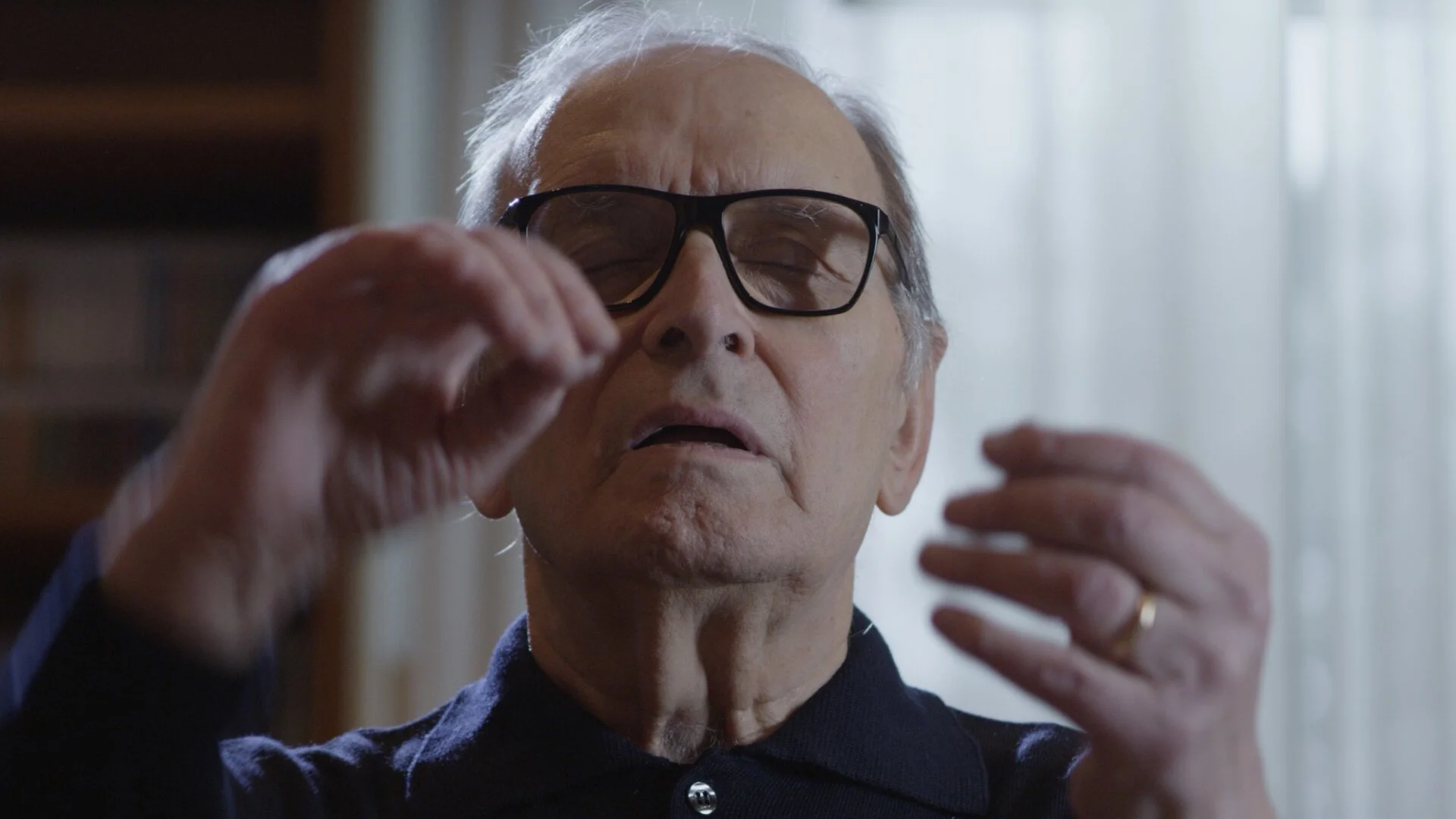If there’s a single argument to be made in favor of The Zone of Interest being a great work of art, it’s the fact that I have walked away from each of my two viewings with entirely different impressions. The first time I watched it, I was at home, and I disliked the majority of what I saw. Save for the very end, I found it self-consciously arty and pretentious, a film that took two slow and tedious hours to say exactly what The Look of Silence had said a decade earlier.
Zone of Interest depicts the day-to-day home lives of Rudolf Höss, commandant of Auschwitz, and his wife Hedwig. It is not, and the movie will not be upset to hear me say this, interesting. He sits through a pitch meeting for work in the study, or takes his children fishing. She tries on a fur coat, tends the garden, receives her visiting mother. The children see daddy off to work as he mounts a horse. It is all achingly, intentionally quotidian.
The ending, in contrast, absorbed me completely. As Rudolf leaves an opulent Berlin party, he stops on a landing and stares off into the dark. The camera cuts to contemporary footage of staff preparing Auschwitz for a day of visitors. They sweep, and wipe, and vacuum. The sound of the vacuum was violent in the context of what had been a quiet, restrained film.
Despite my disinterest in the rest of the movie, I thought about those shots for days afterward. The staff of the museum echoed the staff at the house, bustling here and there on behalf of the museum’s visitors, on behalf of the Hösses, and, somehow, on behalf of me. The shots in the museum felt pointed at the viewer, asking me if I’m all that different from the people I’ve spent the last two hours watching.
I don’t mean that in a boring way. I’m not talking about the Banality of Evil. Events like the Holocaust are far away, we tell ourselves, separated by so much time and civilization. We put our memorials behind glass and tell ourselves that it won’t happen again, which isn’t really all that different from how the Höss family conducts their business. They separated themselves from the realities of their lives with trellises and vines. “This will grow and cover everything, you’ll see,” Hedwig says to her mother about the vines surrounding their yard.
What’s striking about the museum in that instant is the sanitation of the whole thing. The glass is a transparent barrier, that’s better than a wall, but it’s still a barrier. Plate glass separates you and me from piles of abandoned shoes, from thousands of ownerless suitcases, from the systemized subjugation and murder of how many millions of lives. The thing about plate glass is that it can, as we have seen recently, shatter.
As for the rest of the film, what struck me as pretentious at home felt finely-tuned in the theater. Dozens of smaller details leapt out. The Zone of Interest is all about those details. Auschwitz does not exist save for an ambience at the edge of their lives, an inconvenience that continually insists on making itself known. The fishing trip ends suddenly when he realizes that the camp, located upstream, has dumped incinerator ash into the river.
At home, I rolled my eyes. In the theater, I understood that I wasn’t meant to have a reaction to what I was seeing so much as I was meant to observe the characters’ reactions. Imagine having to scrub your children down to rid them of human remains and then going back to work.
A pair of scenes set at night, treated to resemble a photographic negative, show a young girl of about 10 hiding food in the fields where the prisoners work. She pushes apples into the soil and hides pears among their shovels while an ominous sound repeats over and over. Hers are the only altruistic actions in the film, the only time a character steps outside of themselves to think about others without resenting the implications.
Everyone else seems content with their lot, or content to look away. Hedwig’s mother has the most complex reaction of any German we see. At first, she is happy for her daughter, for her house and her successful husband, but that doesn’t seem to last. She vanishes in the night, after waking up to the eerie red light of the incinerator. That’s as close to an act of resistance as any of the Germans get, a quiet “nein, danke.”
The characters we spend the most time with have chosen to lean in, and none with more alacrity than Hedwig. “I could have my husband spread your ashes across the fields of Babice,” she offhandedly snaps at one of the Polish housemaids. She understands the hierarchy of this world. The cruelty, to borrow from Adam Serwer, becomes the point. The Zone of Interest isn’t talking about the Banality of Evil either. It isn’t about evil rendered with indifference. It is about evil realized with surgical precision, with aplomb, because it works. This is a depiction of evil as means.
In their last on-screen conversation, one held over the phone, Hedwig asks Rudolf about the party. “Who was there?” “I didn’t really pay attention,” he replies. “I was thinking about how I would gas them all. It would be a particular challenge, because of the high ceilings.”
As he descends the stairs, just before the contemporary footage of Auschwitz, he stops twice to retch. It is 1943. The worst of the Holocaust is about to begin. Höss has that day accepted responsibility for the military operation that bears his name, the transportation and extermination of Hungary’s 700,000 Jews. The retches seem to me his body’s last attempt to expel all of the evil he has so willingly imbibed. He swallows it down, fixes his cap, and continues to descend the stairwell into absolute darkness.





